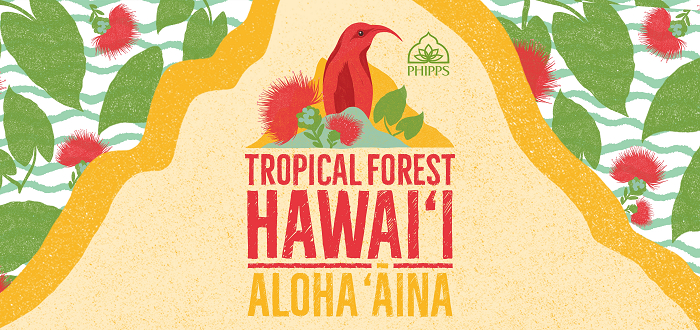Aloha Tropical Forest Hawai’i!
April 27, 2022
Explore the rich history, nature, and culture of Hawai’i in Phipps Conservatory and Botanical Gardens’s new Tropical Forest Hawai’i exhibit.
Phipps Conservatory and Botanical Gardens, located in Oakland, recently opened Tropical Forest Hawai’i. The exhibit replaces Tropical Forest Cuba, which ran from February 2018 to January 2022. Staff traveled to the islands in preparation for the exhibit, which has been in the works for several years.
Tropical Forest Hawai’i will display a multitude of native and endemic plant species. Some of the species on display are koa, the second most common Hawaiian tree, ʻōlulu, also known as “cabbage on a stick”, naupaka kahakai or beach naupaka, a flower with medicinal properties, and hala or screw pine, a tree native to Malesia, eastern Australia, and the Pacific Islands. Efforts for reforestation and preservation of the islands’ biodiversity will be conveyed in the show.
The exhibit opens with a model canoe, which represents the first Polynesian voyages to Hawai‘i. After that, guests with have the opportunity to immerse themselves in interactive stations. There is a three-dimensional model of the island of Kaua‘i, Biocultural Conservation Hub, birding station, and hale, a traditional thatched Hawaiian hut. The model of Kaua‘i teaches the concepts of moku, division of land, and ahupua‘a, a part of the moku which goes from uplands to seashore.
Research about plants that have the possibility of ending world hunger will be shown in the Biocultural Conservation Hub. The birding station will give guests the ability to glimpse life-size carvings of native birds placed throughout the exhibit’s canopy. Lastly, how kalo plants are turned into the staple Hawaiian food poi is displayed, along with the custom of creating kapa cloth out of the bark of wauke, paper mulberry trees.
Everyone must make reservations to see the exhibit in advance, though membership status changes the pricing of the tickets. Members can see the exhibit for free, and for non-members, the prices are as follows:
Adult Daily Admission – $19.95
Senior Daily Admission – $17.95
Student Daily Admission – $17.95
Child Daily Admission – $11.95
As winter turns to spring, sidestep the inconsistent weather by taking a trip to the tropics while learning about the unique aspects of one of the most diverse biocultural states of America, Hawai’i!












